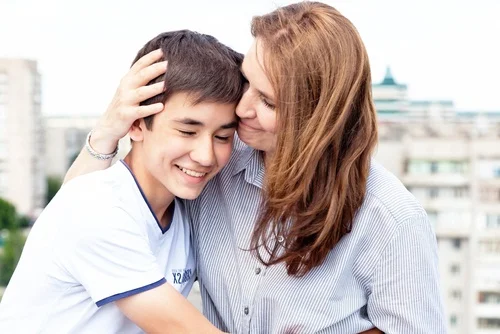+1 845 259 2974 (11 a.m to 7 p.m CST)
What are the Benefits of Living with An Extended Family?

There's a huge focus on independence. We’re encouraged to move out, get our own place, and be self-sufficient from a young age. This idea is everywhere, from films to advertisements. But what if we’ve been overlooking a brilliant, time-tested way of living? What if moving in with your grandparents, aunts, uncles, or cousins isn’t a step backwards, but actually a secret superpower for handling modern life?
An extended family household is so much more than just a busy home with extra people. It’s a dynamic, living community. It’s a built-in support network that’s ready to help 24/7. For everyone involved, from the youngest child to the oldest grandparent, choosing to share a home can transform life for the better. It makes daily challenges easier, deepens relationships, and creates a strong sense of security that is hard to find anywhere else.
Let's dive into the many, many advantages of choosing to live with your extended family.
1. An Unbeatable Built-In Support System: Tough Times Become Easier
Let’s face it, life can be really hard sometimes. Problems feel much smaller and easier to handle when you don’t have to face them alone. This is the number one benefit of a big family home: you are constantly surrounded by your own personal team.
For Parents and Guardians: Parenting is one of the most rewarding jobs in the world, but it can also be the most exhausting. The pressure is immense. Having other trusted adults under the same roof is a lifesaver. It means there’s always someone to help with the school run, share the cooking duties, or watch the baby for an hour so you can have a quiet cup of tea. This shared responsibility reduces stress and prevents burnout.
For single parents, who carry the entire weight of the household on their shoulders, this help is invaluble. In fact, having this kind of consistent, loving backup can seriously lessen the negative psychological effects of a single-parent family on children. It provides them with more stability, more attention, and more diverse caring relationships, which is fantastic for their development.
For Children and Teenagers: Growing up is a rollercoaster of emotions, school stress, and social dramas. Having a multitude of family members around means kids have more than one port in a storm. They might not always feel comfortable talking to their parents about everything, but a kind grandma or a cool auntie might be the perfect person to confide in.
These different relationships give them multiple perspectives and sources of wisdom, helping them navigate their problems more effectively. They learn that asking for help is a sign of strength, not weakness. In fact, the positive impact is so significant that research suggests an extended family household might just be excellent for your teen, offering a unique support system during those tricky years.
For the Older Generation: For grandparents and elderly relatives, living with family is a gift. It helps them avoid the loneliness and isolation that many older people experience. They stay mentally and physically active by being involved in daily family life.
They feel valued, useful, and loved, knowing they are contributing to the family with their wisdom, experience, and stories. It’s a much happier and healthier environment than living alone.
Also Read About: How Society Affects the Behavior, Attitude, and Character of Teens
2. Deeper Connections and Strong Cultural Roots: Knowing Who You Are
When you live together, family bonding isn’t a scheduled activity—it happens naturally every single day. Over shared meals, during evening chats, or while watching television together, family members form incredibly strong, unbreakable bonds.
Children and teenagers growing up in this environment develop a powerful sense of identity. They don’t just hear stories about their heritage and culture; they experience it firsthand. They learn old family recipes from their grandad, hear stories about their ancestors from their nan, and understand family traditions by being part of them.
This connection to their past gives them a solid foundation and a deep sense of belonging in the world, which is crucial for their confidence and self-esteem.
3. Financial Sense: Easing the Pressure on Your Wallet
There’s no getting around it: the cost of living is higher than ever. Rent, bills, and food shops are a constant source of stress for many households. An extended family structure is a genius way to ease this enormous financial pressure.
- Shared Major Costs: The biggest expenses, like the monthly morgage or rent, utility bills, and even big food shops, can be split between the working adults. This dramatically reduces the burden on any one person or couple, freeing up income for other things like savings, family holidays, or educational activities for the kids.
- Sharing Resources and ‘Stuff’: Why does every household need its own lawnmower, power drill, or expensive subscription service? In a extended family home, you can share one of everything. This is not only kinder to your bank account but also much better for the environment. It’s a smarter, more sustainable way to live.
- Affordable, Trustworthy Childcare: The cost of professional childcare is astronomical. In a multigenerational home, this cost often disappears. Grandparents or other relatives can provide flexible, loving care that parents can trust completely. This allows parents to work longer hours, pursue career opportunities, or simply take some well-deserved time for themselves without worrying about recieving a huge babysitting bill.
4. A Whole Team of Role Models: Learning from Everyone
For a young person, having access to a variety of positive influences is absolutely priceless. An extended family provides a whole team of coaches and mentors, each with their own special skills and lessons to teach.
- Parents provide the core structure, discipline, and values.
- Grandparents offer incredible patience, historical perspective, and unconditional love.
- Aunts and Uncles often become fantastic mentors and friends, acting as a brilliant bridge between the world of children and adults.
This variety is so beneficial. It helps children see that there are many ways to solve a problem, pursue a hobby, or live a good life. This is especially true for single parents; for example, a single mother might find that having male role models like uncles or grandfathers around provides invaluable support and is a key part of tips for single mothers on raising teenage sons. They can offer guidance, modelling, and man-to-man talks that are difficult for a mum to provide on her own.
Also Read About: How Social Media Affects Your Children's Mental Health
5. Learning Life Skills Naturally: Lessons You Can’t Get in School
In a multigenerational home, education doesn’t stop at the school gates. Learning happens through everyday living. Kids naturally learn empathy and patience by interacting with and helping their elders.
A teenager might learn how to change a car tyre from their uncle, how to manage a budget from their organised aunt, or how to grow vegetables from their grandad. These aren’t skills taught in a classroom; they are passed down through generations in the most natural and effective way possible, by doing them together.
Making It Work Smoothly: Talk and Respect
Of course, living with more people requires good communication and mutual respect. It’s essential to have open conversations about expectations, finances, and household rules from the beginning. Everyone needs their own space and privacy. But when everyone approaches the situation with patience, kindness, and a sence of humour, the benefits are truly amazing and far outweigh any challenges.
Choosing to live in an extended family isn’t about giving up your independence. It’s about choosing a different kind of freedom—the freedom to know that you will always have help. It’s a conscious decision that says, "We believe we are stronger together than we are apart."
In our often isolated and fast-paced modern world, the extended family home offers a timeless blueprint for support, financial security, and deep, meaningful connection. It’s a beautiful reminder that sometimes, the very best way forward is to embrace the village you already have.


















